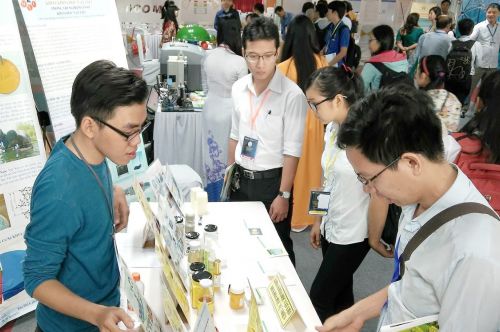Fishermen could lose EU market

Big challenges
All seafood export consignments to the EU from October 31, 2010 must be clearly labled as to the origin of the products, including the sea area where the fish are caught and the names of the fishing boats, or they will be refused entry.
Though both seafood exporters and management agencies have known about the EU’s new IUU (illegal, unreported and unregulated fishing) law for quite some time, they told VietNamNet there’s “still a mountain of really hard work to do.” The hardest nut of all to crack is changing the age-old habits of Vietnamese fishermen.
Nguyen Van Hoa, General Director of SG Fishco, said that even in Europe, many countries still cannot adapt to the IUU rules. Implementation will be easiest for large fishing ships equipped with global positioning system (GPS) and which fish on big zoned waters.
In Vietnam, fishing grounds have not been zoned yet. Vietnamese fishermen rove over a large territory. For example, fishermen in Binh Dinh province may go as far as the waters off far-south Kien Giang province. It’s going to be really difficult to define the catching areas for reporting.
Nguyen Xuan Nam, head of a seafood company in Nhatrang, said that most processing companies collect materials from small wholesalers; they do not buy directly from the fishing boats. Meanwhile, the wholesalers consolidate the catch from tens or hundreds of fishing boats. Therefore, it’s also very difficult to define the actual origins of the products. “I assume that every consignment will require tens or hundreds of different documents to show the origin of products,” Nam said.
An exporter in Binh Thuan province said that many boat captains are illiterate, so it is impossible to require them to make declarations about origins.
Khanh Hoa authorities say the province began requiring declarations about product origin eight years ago from eleven enterprises. However, the scheme could only be implemened for big fishing boats and because it was so labor-intensive, it was abandoned after about 18 months.
Binh Thuan authorities also said that it is really very difficult for them to require seafood companies to trace down the origin of materials because almost 9000 boats are home-ported in the province.
Try or die
Despite the big challenges, Tran Bich Nga, Deputy Head of the National Agro-Forestry-Fisheries Quality Assurance Department (Nafiqad), says Vietnamese exporters must strive to meet the IUU requirements, because they don’t want to lose the EU market. The EU takes 26 percent of Vietnam’s seafood exports.
Nguyen Thi Thu Sac, a deputy chairwoman of the Vietnam Association of Seafood Exporters and Producers (VASEP), says that the industry and fisheries officials need to get into a direct problem-solving discussions with representatives of the EU. Vietnam needs to show the problems its seafood industry is facing, Thu Sac adds, and ask the EU to amend some regulations to create more favourable conditions for Vietnam’s industry.
Some enterprises have suggested that Vietnam should propose the EU at first apply the IUU requirement only to ocean-going fishing ships with capacity of over 90 cubic meters, and delaying its application to smaller boats.


